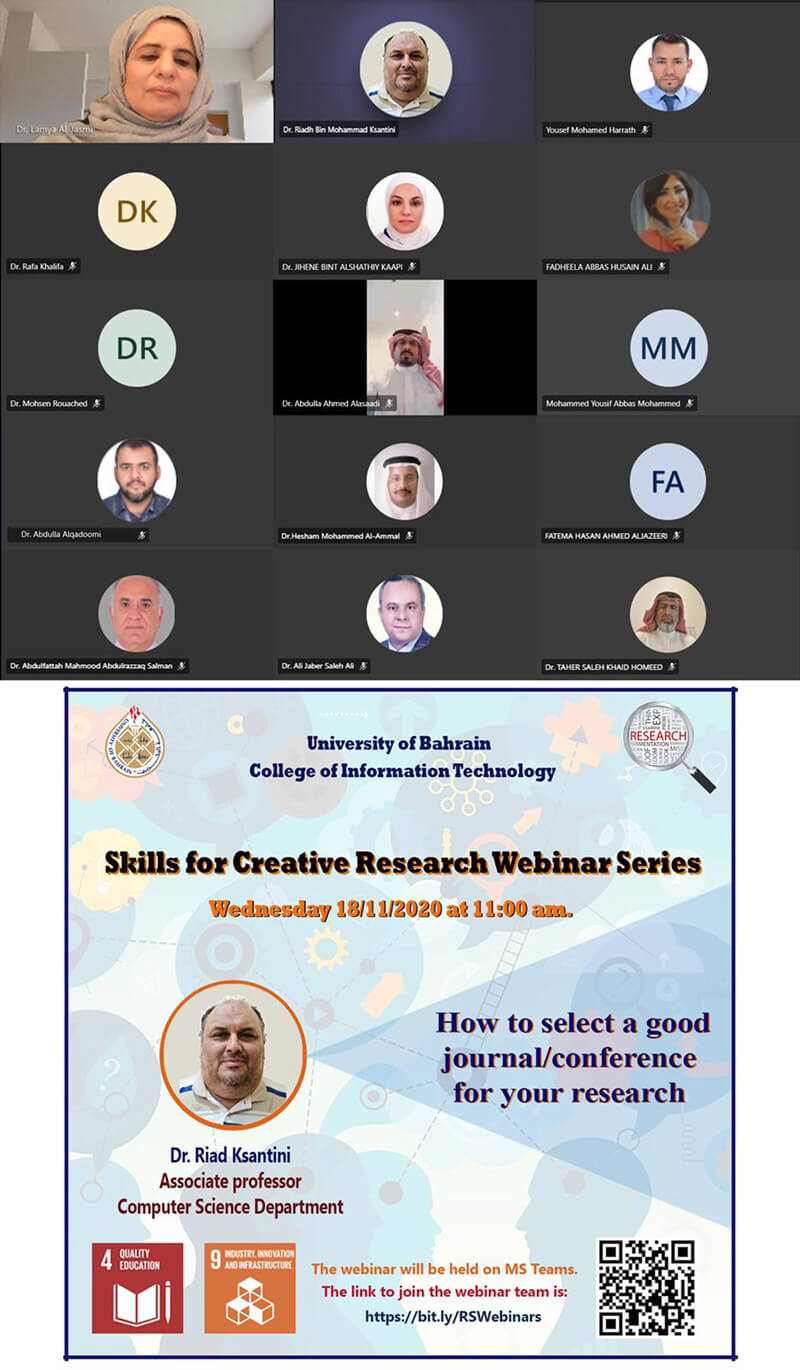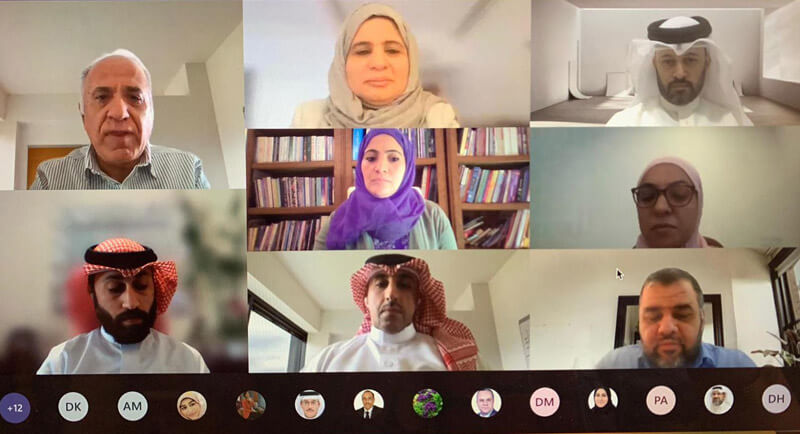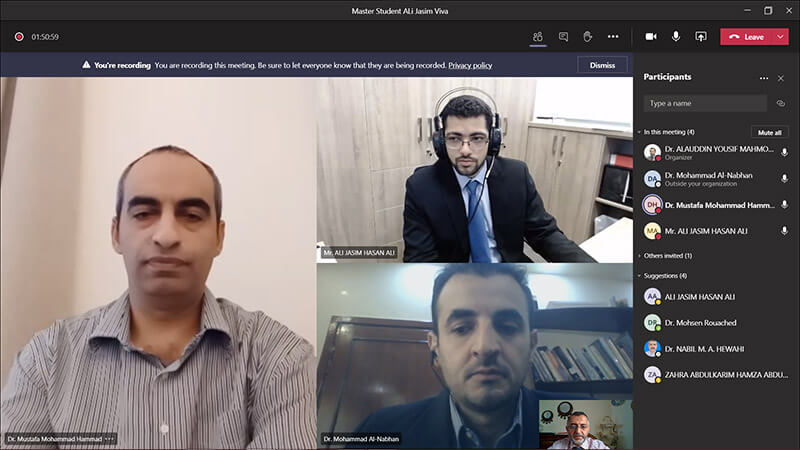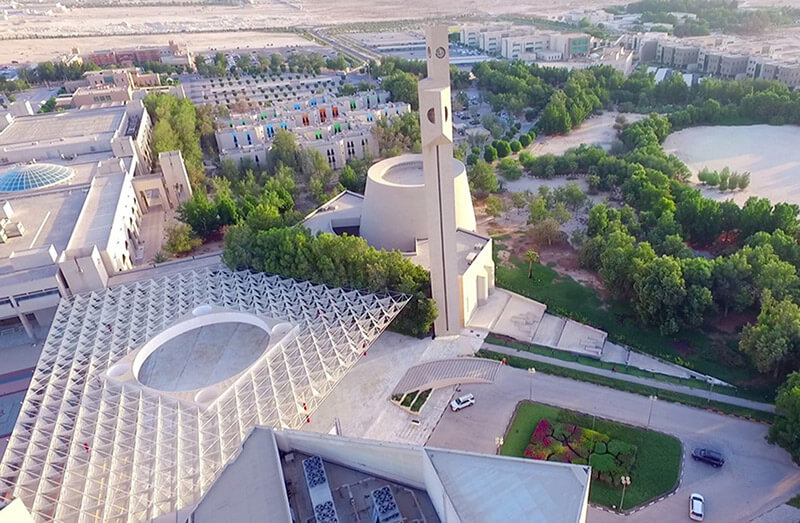NEWS
UOB students participate in projects with CERN
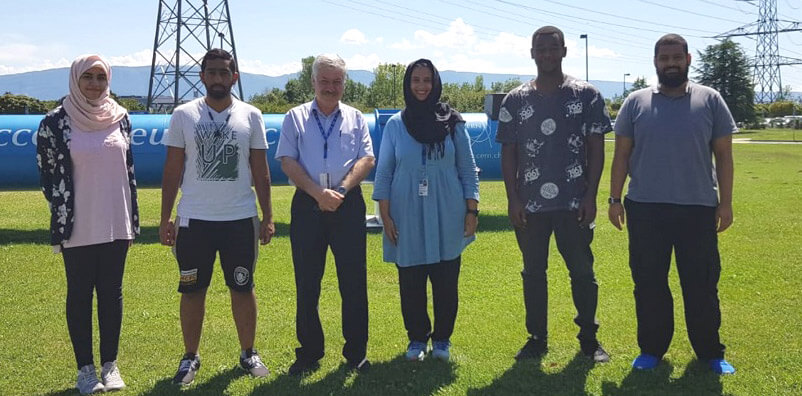
With the Support of “Search” Center
UOB students participate in projects with CERN
Four students from the University
of Bahrain (UOB) have recently completed their training at the largest
laboratory in the world in Particle Physics, the European Organization for
Nuclear Research (CERN). This visit is considered the beginning of the
cooperation of UOB with the Muon Detector Experience, after joining that
experiment as an associate member on the 8th of February 2019.
This visit was the first of its
kind, where four students from UOB joined as a group for training and the projects
implementation at CERN, which had previously trained a number of students from
UOB in previous years individually. This comes within the framework of the
existing scientific cooperation between UOB and “Search” Center for Elementary
Particle Physics, branching off from the Shaikh Ebrahim bin Mohammad Al-Khalifa
Center for Culture and Research, for training and working on the implementation
of projects with the Muon Detector Experiment (CERN) in Switzerland.
The establishment of the College
of Science project for theoretical calculations to monitor elementary particles
resulting from collisions by the muon detector is currently underway, and the
project will be headed by Dr. Mohammed Yousif Hussain, who joined CERN team in
August 2019 to work for a month on the project.
College of Engineering student,
Abdulsalam Saad, worked on designing and building a new automatic platform to
be used for the maintenance of the muon detector in an effective and practical
way. He started working on this project at the beginning of July 2019, and for
a period of 6 months. The project team headed by Assistant Professor in the
Department of Electrical and Electronic Engineering Dr. Zuhair Khalifa Al-Bahri
is doing research with aluminum companies in Bahrain to build the platform from
aluminum, in order to replace the currently used platform, and which shall be
the first device to be used in the giant muon detector from the Kingdom of
Bahrain.
Furthermore, student Saad stated,
“I have benefited a lot from my experience at CERN through learning about
the methodology used in project management and planning, and methods of dealing
with advanced and specialized programs in mechanisms designing,”. Stressing
the importance of the physical and engineering information that he gained from
the various programs prepared at CERN, and indicating the depth of the
instructions given by the scientists and experts in CERN to the participants,
to implement and design most of the mechanical engineering-related tasks in the
projects, and that he is striving to expand his scientific perceptions that
shall open up professional horizons for him, enabling him to work seriously and
discreetly, to participate in more projects with CERN.
Moreover, student Abdullatif Isa
Rashdan (fourth year in the Department of Computer Engineering) indicated that
his work with CERN shall be devoted to preparing the infrastructure for the
analysis of the computing power of the data centers of the NA62 cion plant experiment,
which investigates the rare decay that occurs for this type of molecule in
Nuclear Physics, explaining that the computing power analysis requires
preparing the infrastructure and designing highly efficient and automatic
solutions proportionate to the high number of devices.
Also, he said “The server
room in this experiment consists of thirty computers that are used to process
huge data that results from the experiment before analyzing it and sending it
to permanent storage units,” pointing out that the project uses the latest
global technologies to increase work efficiency, shorten time and make the
solution applicable in any Infrastructure that needs testing in the future.
Moreover, Research Assistant and
Teaching Assistant at the College of Information Technology, Abdullah Ebrahim
Sabah, joined the work for a year starting from the 1st of June 2019
to help implement the project of the College of Information Technology at the UOB
with the muon detector experiment, and Sabah used the data processing unit to rebuild
the event for the collision of protons. Headed by Associate Professor in the
College’s Computer Engineering Department, Dr. Wael Mohammad Al-Madani, the
College of Information Technology team is working on the implementation of this
project to be the first step for establishing a continuous cooperation with
CERN in the field of technology.
Also, third-year student in the
Department of Physics at the College of Science, Mariam Ja’afar, described her
experience at CERN as a “golden opportunity” that enabled her to gain
professional experience through her work under the supervision of a group of
researchers and scientists from different parts of the world, and in an
environment completely different from what she was used to at UOB, and stated:
“It was a challenge that I enjoyed and will be useful in achieving my
scientific goals.”
Also, she said, “CERN
organizes competitions periodically, which encourages to benefit from the
creativity of young people, one of which is” Web Fest “, as I had the
opportunity to participate in this competition, which was characterized by work
pressure in two days, but it was one of the best experiences I have gone
through and I have learned a lot from it.” As I managed to win second place in
this competition.

